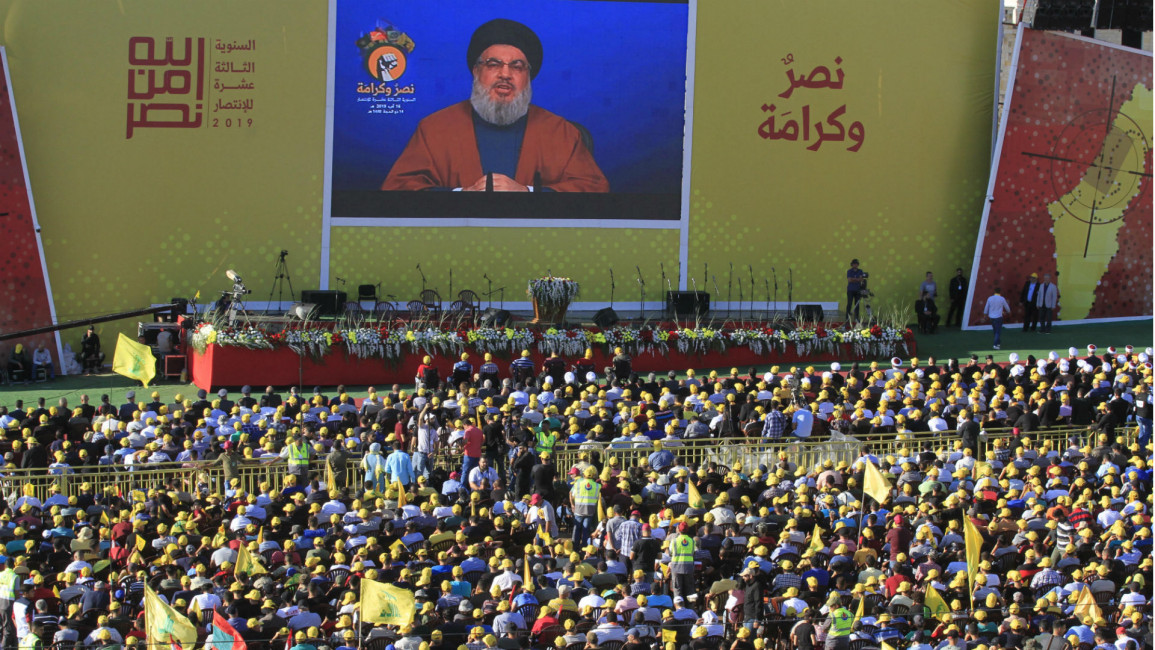Hassan Nasrallah threatens attacks "deep inside" Israel
Hezbollah chief Hassan Nasrallah said Monday there were "no more red lines" in the Lebanese movement's confrontation with Israel, threatening attacks deep inside the country a day after the two traded cross-border fire.
"Yesterday, the resistance broke Israel's biggest red line in decades," he said in a televised speech.
"In the past, when we were attacked, we responded in the Shebaa Farms," a disputed area along the Lebanon-Israel ceasefire line, he said.
"But yesterday, the response was across the frontier," within Israel's internationally recognised borders, crossing what he said Israel considers a red line.
Today, Nasrallah said, "there are no more red lines."
The threat came after Hezbollah said Sunday its fighters had "destroyed" a military vehicle on the road to the Avivim barracks in northern Israel, killing or wounding those inside.
Israel's army said it had responded with around 100 artillery shells after Hezbollah fired two or three anti-tank missiles at a battalion headquarters and military ambulance, hitting both.
Israeli officials refuted claims of casualties.
Sunday's exchange of fire over the Lebanese-Israeli border came a week after Hezbollah accused Israel of carrying out a drone attack on its southern Beirut stronghold.
On August 24, Israel also said it had carried out strikes in Syria to avert an Iranian drone attack on the Jewish state.
Hezbollah said those strikes killed two of its members.
On Monday, Nasrallah vowed to hit "deep inside Israel," and not just along the border, in case of a new Israeli attack.
"If you attack us, your borders, soldiers and settlments - including those on the border and those deep inside (Israel) - will be threatened and targeted," he said.
"If there is any aggression against Lebanon, there will be no such thing as international borders."
The Hezbollah leader said the "first phase" of the response to last week's Israeli attacks on Syria and Lebanon had ended.
But he said his group would target Israeli drones over Lebanese air space.
Hezbollah expert Amal Saad told AFP Sunday's fire "was a response to the attack in Syria", not to the Beirut drone attack.
Hezbollah, which has grown into Iran's most powerful regional proxy, wields huge influence in Lebanese politics and its military might is said to outstrip that of the state.
Israel's military capabilities, which include cutting-edge technology and a fleet of the world's most advanced fighter jets, are vastly superior.
But reports that Hezbollah is acquiring precision-guided missiles with Iran's help have raised alarm across the boder.



